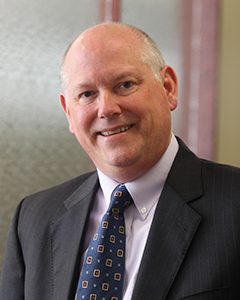What We’re Wishing for in 2021

While there was some good news for the retirement industry during the annus horribilis (as Latin speakers would have it) of 2020, there were more than enough misfortunes and setbacks for most of us.
Nevertheless, “Perpetual optimism is a force multiplier,” according to Colin Powell. So it is that we start this year by expressing a few of our greatest hopes for 2021.
Passage of the Securing a Strong Retirement Act (SSRA) of 2020. Also known as “SECURE 2.0,” the bill would, among other things, create a new financial incentive for small businesses to offer retirement plans; give individuals aged 60 and older more flexibility to set aside savings as they approach retirement; and create a national online database of lost retirement accounts, making it easier for employees to find those accounts. (More about SSRA can be found here.)
Although the bill never reached a vote last year, SSRA co-sponsor and House Ways & Means Committee Chairman Richard Neal (D-MA) has said he expects to reintroduce it in the new Congress, which convened on Jan. 3.
Extension of CARES Act relief. The $2.2 trillion Coronavirus Aid, Relief and Economic Security (CARES) Act, signed into law on March 27, 2020, helped the economy in general, and untold numbers of businesses and individuals in particular, to fiscally survive the pandemic. Among a multitude of items, the CARES Act suspended required minimum distributions from traditional Individual Retirement Accounts (IRAs) and employer-sponsored retirement plans for 2020, waived the 10% tax penalty for early distributions from 401(k), 403(b), 457(b) plans and IRAs, under certain circumstances; and increased the maximum amount of a loan from an employer-sponsored 401(k) plan, from the lesser of $50,000 or 50% of the plan participants’ vested assets to the lesser of $100,000 or 100%.
While Congressional leaders finally came to an agreement on a $900 billion stimulus bill on Dec. 20, what impact – if any – it will have on plan participants remains uncertain. We are hoping that the deadlines involved (details of which can be found here) can be further adjusted as we face a new year where the effects of COVID-19 are still very uncertain.
An End to the COVID-19 Pandemic (Of Course) This not only goes without saying in a general sense – as of Jan. 22, there were almost 25 million cases and 413,000-plus coronavirus-related fatalities in the U.S. alone, and over 98 million cases and 2.1 million deaths worldwide – but in an economic sense, as it relates to retirement savings, as well.
Some objected to the aforementioned easing of penalties and other restrictive measures when it came to allowing people to take money from their retirement accounts. We never joined that particular bandwagon; it was (and in many cases, still is) obvious that people needed money, and they needed it now.
That is perhaps an odd comment coming from someone who has always counseled “Save early and save often” when it comes to retirement, but as has been endlessly repeated, these have been unprecedented times.
However, once the pandemic is behind us – something that now seems possible with the Pfizer and Moderna vaccines – it will be time to regroup and think about how to replenish those retirement funds, and to go about making sure that one’s golden years are what one has always hoped they will be. As always, we will be here to offer our advice and expertise.
And so here is to a brighter 2021. May it bring you the happiness and security that was lacking for so much of last year.
About the Author
